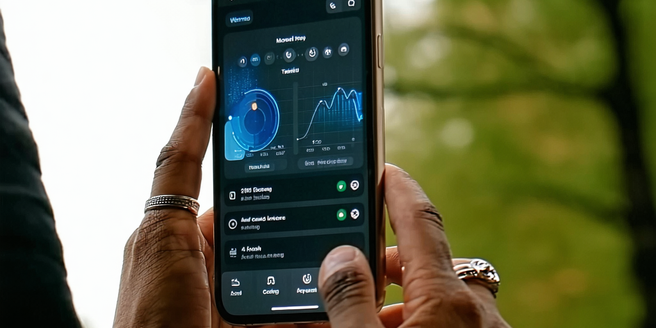Ai’s Contribution To Mental Health

Understanding the Role of AI in Mental Health Support
Artificial Intelligence has increasingly become integral in providing mental health support. Through apps and online platforms, AI-driven tools offer personalized therapy sessions, monitor patient moods, and even alert professionals about potential risks. With natural language processing and machine learning algorithms, these tools can analyze textual data to detect signs of anxiety or depression, ensuring timely intervention. Moreover, AI systems can provide 24/7 support, making mental health resources more accessible than ever. Internet-based cognitive behavioral therapy, enabled by AI, has shown significant promise in reducing psychological distress. While AI cannot replace human empathy, it offers supplementary assistance, thereby easing the burden on mental health professionals. As technology advances, AI’s role in mental health will likely become even more significant, bridging gaps in accessibility and affordability.
How Machine Learning is Revolutionizing Therapy Approaches
Machine Learning is transforming therapy by providing data-driven insights into patient behavior and treatment efficacy. Traditional therapy often relies on manual assessments that are subject to human bias. In contrast, machine learning models analyze vast datasets to uncover patterns that may not be immediately visible. These models enable therapists to tailor interventions to the individual needs of each patient, thereby increasing the chances of successful outcomes. Predictive analytics can also determine which therapy modalities might work best based on historical data. This approach reduces trial and error, making therapy more efficient. Additionally, virtual therapists powered by machine learning offer consistent and judgment-free environments for patients to express themselves. As these technologies evolve, they hold the potential not only to make therapy more effective but also to democratize access to high-quality mental healthcare.
AI-Powered Tools for Early Detection of Mental Health Issues
AI technology plays a pivotal role in the early detection of mental health issues, helping identify symptoms before they develop into more severe conditions. Through digital platforms and mobile applications, AI algorithms analyze user interactions, social media activity, and speech patterns to flag potential mental health concerns. This proactive approach can lead to early intervention, drastically improving treatment outcomes. Sentiment analysis tools cater to recognizing emotional states, while machine learning models predict mental health risks by sifting through various indicators. The ability to provide real-time assessments makes AI a crucial asset in community mental health awareness. However, clinicians must carefully interpret AI-generated data to prevent misdiagnosis. As these systems continue to refine predictive capabilities, they could serve as vital support mechanisms in mental health monitoring, enhancing both prevention and early treatment access.
The Benefits and Limitations of Chatbots in Counseling Services
Chatbots offer numerous advantages in counseling services, including accessibility and scalability. These AI-driven entities provide immediate, round-the-clock support without the constraints of human availability. They can deliver initial counseling, suggest coping strategies, and encourage individuals to seek further help if needed. For people preferring anonymous consultation, chatbots offer a non-judgmental platform to discuss sensitive issues. However, the limitations lie in their inability to understand complex human emotions fully. Unlike human counselors, chatbots lack empathy and the nuanced comprehension needed for deep psychological issues. Their effectiveness depends greatly on the quality of their training data and predefined algorithms. While chatbots are valuable tools for addressing common mental health challenges, they should complement rather than replace traditional therapy. A hybrid approach blending AI capabilities with human expertise could potentially offer the most comprehensive support.
Case Studies: AI Applications in Real-world Mental Health Scenarios
Real-world applications of AI in mental health are illustrated through various case studies. One prominent example is Woebot, a chatbot that uses cognitive-behavioral techniques to assist users in managing anxiety and depression. In clinical trials, Woebot has demonstrated efficacy comparable to traditional therapy for mild symptoms. Another instance involves AI algorithms employed by a London hospital to predict patients’ risk of mental health crises. These models analyze social and clinical data, enabling timely interventions. Similarly, AI-driven virtual reality platforms are used in exposure therapy for PTSD, allowing users to safely confront fears. While these applications show promise, successful integration requires continuous evaluation and ethical considerations. Privacy and data protection remain challenges as well. Nonetheless, these technologies provide invaluable insights and efficiencies, paving the way for innovative mental health solutions that can be scaled globally.
Future Prospects: What AI Innovations Are on the Horizon?
The future of AI in mental health holds exciting possibilities with innovations that promise to enhance care delivery and effectiveness. Advances in natural language processing and machine learning are likely to lead to smarter, more personalized AI tools, capable of detecting subtler emotional cues. Virtual reality coupled with AI aims to transform therapeutic environments, offering immersive experiences for more profound emotional healing. The integration of AI with wearable technology could aid in real-time mental health monitoring, tailoring interventions to individual needs dynamically. Furthermore, ongoing research in ethical AI will ensure these solutions are both effective and safe. However, with these promising prospects, it is crucial to address potential issues related to data privacy and algorithmic bias. By maintaining a focus on human-centered design, AI innovations can continue to forge pathways that democratize mental health support and treatment.